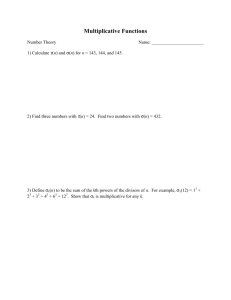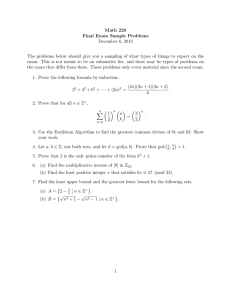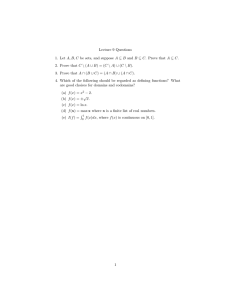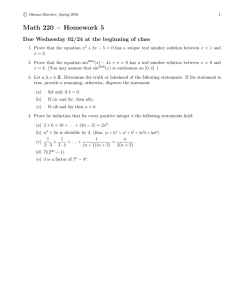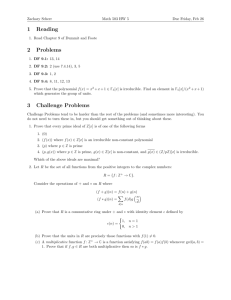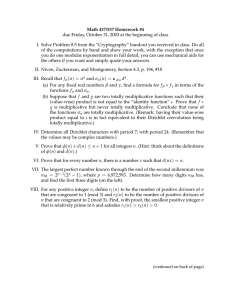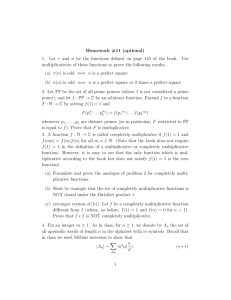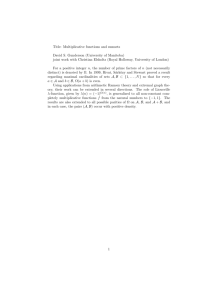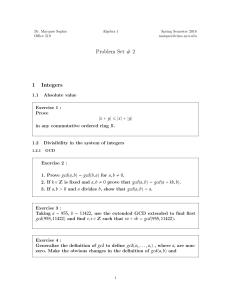Mathematics 539 – Exercises # 1 Arithmetical Functions 1. Prove that X
advertisement
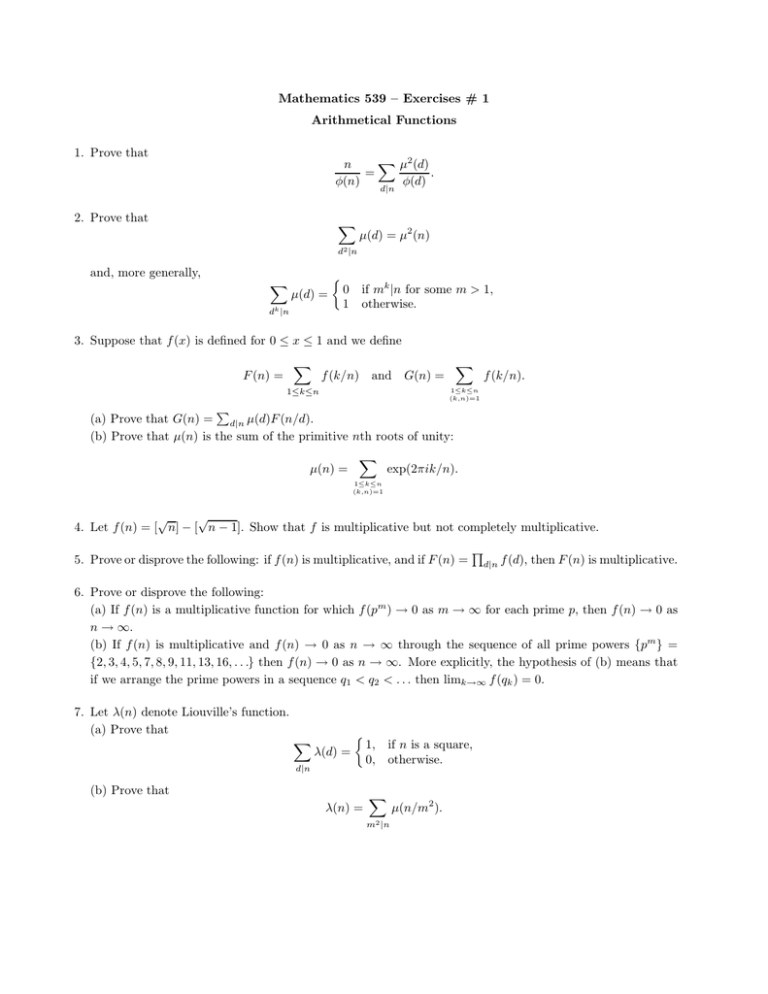
Mathematics 539 – Exercises # 1
Arithmetical Functions
1. Prove that
X µ2 (d)
n
=
.
φ(n)
φ(d)
d|n
2. Prove that
X
µ(d) = µ2 (n)
d2 |n
and, more generally,
X
µ(d) =
dk |n
0
1
if mk |n for some m > 1,
otherwise.
3. Suppose that f (x) is defined for 0 ≤ x ≤ 1 and we define
X
F (n) =
X
f (k/n) and G(n) =
1≤k≤n
f (k/n).
1≤k≤n
(k,n)=1
P
(a) Prove that G(n) = d|n µ(d)F (n/d).
(b) Prove that µ(n) is the sum of the primitive nth roots of unity:
µ(n) =
X
exp(2πik/n).
1≤k≤n
(k,n)=1
√
√
4. Let f (n) = [ n] − [ n − 1]. Show that f is multiplicative but not completely multiplicative.
5. Prove or disprove the following: if f (n) is multiplicative, and if F (n) =
Q
d|n f (d),
then F (n) is multiplicative.
6. Prove or disprove the following:
(a) If f (n) is a multiplicative function for which f (pm ) → 0 as m → ∞ for each prime p, then f (n) → 0 as
n → ∞.
(b) If f (n) is multiplicative and f (n) → 0 as n → ∞ through the sequence of all prime powers {pm } =
{2, 3, 4, 5, 7, 8, 9, 11, 13, 16, . . .} then f (n) → 0 as n → ∞. More explicitly, the hypothesis of (b) means that
if we arrange the prime powers in a sequence q1 < q2 < . . . then limk→∞ f (qk ) = 0.
7. Let λ(n) denote Liouville’s function.
(a) Prove that
X
λ(d) =
d|n
(b) Prove that
λ(n) =
1, if n is a square,
0, otherwise.
X
m2 |n
µ(n/m2 ).
